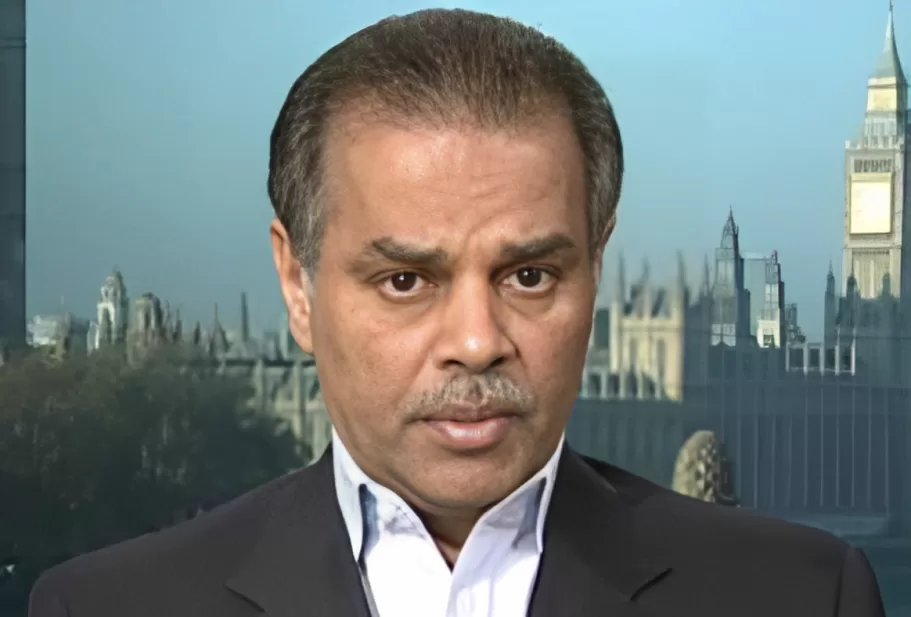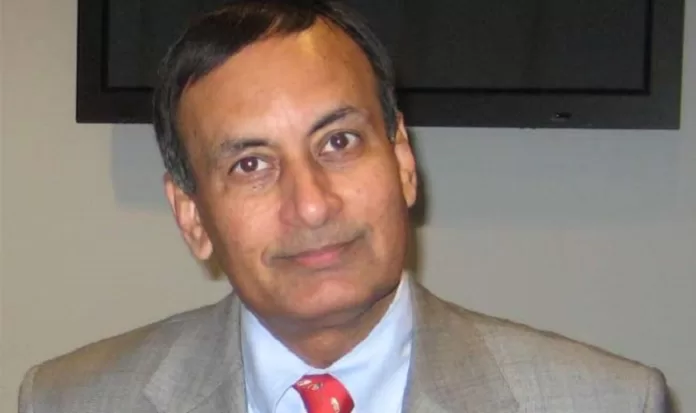By all accounts Hussain Haqqani and Mansoor Ijaz were good friends, the tone and tenor of the BlackBerry exchanges clearly show they made for a lethal combination. The May 10 Memo was meant to be a specially crafted “neutron bomb” to (1) change the present national security parameters in Pakistan and bring it into line with long-term US policy imperatives and (2) enable the present rulers to exercise absolute control of the military. An inquiry would identify and punish the officials responsible for “harboring bin Laden”, replacing them with a new Pakistani national security leadership that would “(1) bring transparency and “discipline” to Pakistan’s nuclear program (2) eliminate Section S of the ISI, which is “charged with maintaining relations to the Taliban, Haqqani network” and other rogue elements and (3) work with the Indian government to punish the perpetrators of the 2008 terrorist attack in Mumbai”.
When any businessman, not excluding Mansoor Ijaz, engage in back channel diplomacy, they run the risk of becoming controversial if things go wrong, friend Hussain Haqqani falls frequently in that category with respect to his credibility. The Memo was meant to spook the Americans into pre-emptive action, “civilians cannot withstand much more of the hard pressure being delivered from the Army to succumb to wholesale changes. If civilians are forced from power, Pakistan (will) become a sanctuary for UBL’s [Osama bin Laden’s] legacy and potentially the platform for far more rapid spread of al Qaeda’s brand of fanaticism and terror. A unique window of opportunity exists for the civilians to gain the upper hand over army and intelligence directorates due to their complicity in the UBL matter.” Mansoor Ijaz states, “Haqqani believed he and the President (Zardari) could redraft the architectural blueprint of how Pakistan should be governed in the future — with civilians in command of the armed forces and intelligence services. A “new national security team” would see Haqqani as the “National Security Advisor” (NSA)”. Over the years many others have harbored that ambition.
While the Principal motivating the Memo’s creation remains un-named, “this commitment has the backing of the top echelon on the civilian side of our house”. Everyone and his uncle knows that Haqqani reports directly to the Presidency either directly to Zardari or through Salman Faruqi, the PM and/or the Foreign office only come into the loop by default on routine matters or when it suits Haqqani to do so. The hoopla about the 18th Amendment notwithstanding, Zardari remains an all powerful President and Salman Faruqi the de-facto PM in all but name.
How did Mansoor Ijaz take to being used as a conduit for this rather explosive document that seems to resemble the intent of the Kerry-Lugar Bill? “Haqqani was likely the sole architect of the back-channel intervention and needed a plausibly deniable go-between to make it work. I fit that bill perfectly because he knew the Pakistanis, who have been assassinating my character and diminishing my person for decades, would have at him (Haqqani) with glee if things went wrong. If a leak occurred purposefully or accidentally, there was an orchestration to cover our tracks even at that moment because there was always a possibility this could get out”. Mansoor Ijaz confirmed “Haqqani’s reputation as Ambassador as being more of America’s Ambassador to Pakistan than Pakistan’s Ambassador to America”, but he believes “his motives were patriotic”, and seeing Haqqani as much needed in the troubled U.S.-Pakistan relationship.
Haqqani says he did not write or deliver the memo, not did authorize anyone to do so. He does not explain what the Pakistan Ambassador to the US was doing in London on a private visit talking to senior British govt officials, including Sir David Richards, Chief of General Staff, and Mr Tobias Ellwood, then Parliamentary Secretary for Defense, during a most critical time in US-Pakistan relations? To avoid any linkages Haqqani may have tried to route his initiative initially through the British. When British did not respond, he turned to Mansoor Ijaz and the US route.
While the Memo was being crafted by Mansoor Ijaz on Haqqani’s prompting, there were calls between his room in Park Lane Intercontinental London and Monaco, where Mansoor Ijaz has a home.

When the FT article brought the Memo to light, the ISI Chief went to London and satisfied himself that the Mansoor Ijaz evidence was prima-facie credible. Thereafter extensive forensic tests must have verified its credibility before Shuja Pasha took the evidence to Kayani. The material being quite explosive the COAS must have independently satisfied himself about its contents before he went to the President with the findings.
The real question is whether Haqqani did all this with the permission of his “boss” or was it an individually conceived “rogue operation”? The data on his many BlackBerry and SIMs will likely reveal a treasure trove of information about his various machinations. Zulfikar Ali Bhutto had sacked Lt Gen Ghulam Hasan as COAS Pakistan Army on 3 Mar 1972. Till the period upto 5 July 1977 when Bhutto was overthrown, the military (and by extension the ISI) was very much under civilian (Bhutto) control. Bhutto was a dictator in all but civilian name and not many know that it was his initiative to make the political cell in the ISI into a regular entity. With the Pakistan Army in the dumps after the May 2 Obama Bin Laden raid like it was on the ropes after 1971, Haqqani probably saw this a golden opportunity to cut the national security apparatus down to size.
Over the year misunderstandings have been deliberately created by motivated individuals to exacerbate the US-Pakistan relationship and build up their own nuisance value. Since Haqqani has “Haqqani” as priority over everyone and everything else. Haqqani finessed this into a fine art, exploiting to it his advantage. Bad-mouthing the army and ISI comes naturally to him. Appointment as Pakistan’s Ambassador to the US was godsent for him, allowing him secondarily to protect the interests of his mentor, Asif Ali Zardari. The red herring about a possible army coup was pure fabrication, the over-kill is probably why Mullen claims he ignored it. The gist of the Memo’s thrust has persisted, a few months later out of the blue Mullen accused the ISI of being complicit with the Haqqani network in the attack on the US Embassy in Kabul. When every Pakistani was actively condemning the Mullen statement, including Pakistan’s Ambassador to the UN Husain Haroon, how come “patriot” Husain Haqqani remained absolutely quiet?
If Haqqani is guilty and set free, he will be lethal against Pakistan. His resignation should not close the case, he has much to answer for. Moreover Haqqani could not have risked all without adequate backing. As the Rasputin who runs things for Zardari in Pakistan, the cutout in the Presidency is believed to be Salman Faruqi. Asked on primetime TV a few weeks ago what the Pakistan Army should do to dismantle the Haqqani network in FATA, I said what was really needed was to dismantle the “Haqqani network” in Washington DC!
Now that the US portion has been dealt with, it is time to dismantle the “Haqqani network” in the Presidency!
Courtesy: The News




